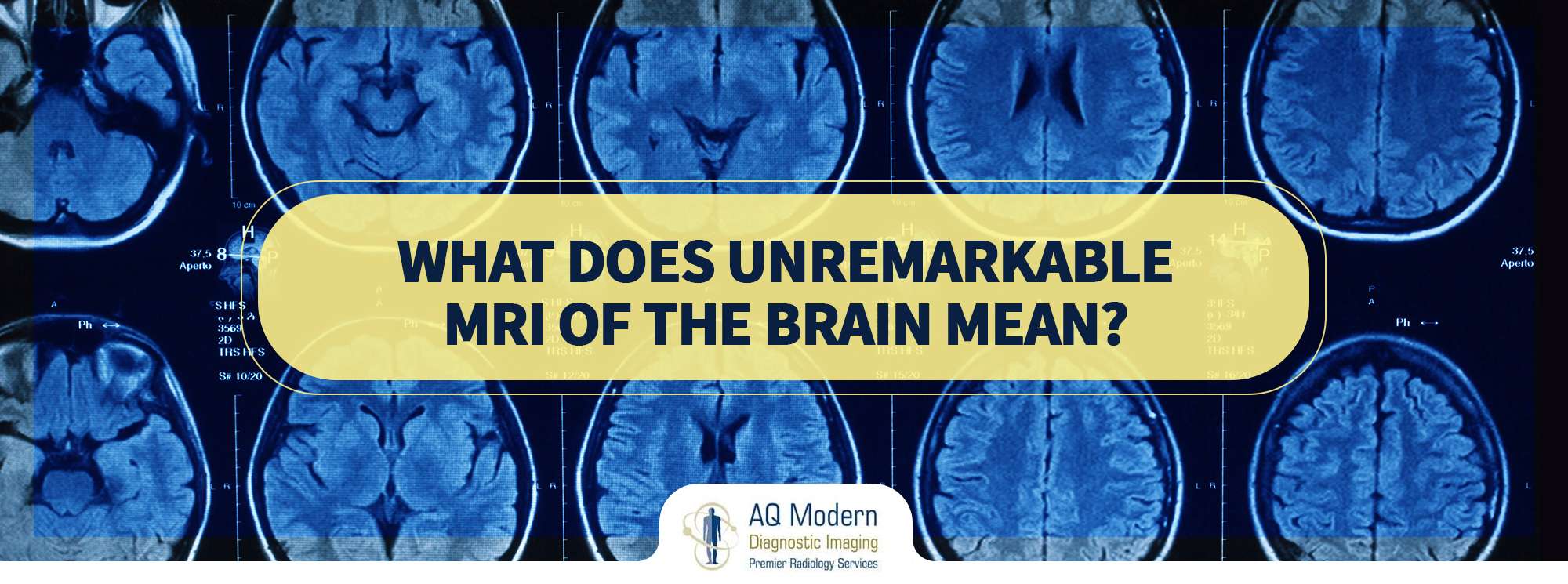What is MRI?
Magnetic Resonance Imaging is a painless test done on your brain. It involves the radiologist using radio waves and magnetic fields.
As a result, MRI offers detailed pictures of your brain and brain stem.
MRI is different from a CT scan because the procedure doesn’t involve radiations. Instead, an MRI scan uses a magnet to check for potential issues with your brain.

Many MRI Elizabeth NJ diagnostic imaging networks offer open MRI machines as well. They are specifically designed for patients having claustrophobia. Patients lay on a table that goes into a tunnel. The tunnel is placed in the middle of the magnet.
The magnet offers radio waves that target your body’s atoms and sends their location to the computer. The computer receives these images. And, after various calculations, it presents clear black and white pictures of your brain.
Magnetic Resonance Imaging is used for determining a plethora of body problems related to your spinal cord, brain, and neck. The procedure also helps your doctor understand more about the possible issues you may be facing with your heart, joints, and chest.
Why is an MRI Scan of Your Brain Done?
You may need Magnetic Resonance Imaging for numerous reasons. They might be in search of blocked blood vessels. Or maybe the doctor wants to check signs of tumors, causes of strokes, or the presence of cysts.
You may also require an MRI if you are experiencing frequent aneurysms or swelling of your blood vessels. Sometimes, any injury to your spinal cord may damage a blood vessel or a part of your brain. In such cases, you may need to undergo an MRI to check your brain’s condition after such critical injuries.
Apart from that, other conditions that may arise the need for magnetic resonance imaging are:
- Inflammation
- Swelling
- Seizures
- Blurry eyesight
- Hemorrhage
- Hormonal disorders (for example the Cushing’s syndrome)
Types of MRI
Five of the widely-practiced MRIs comprise of:

- Functional MRI: Brain scans to detect issues predicting a stroke. fMRIs are also performed before major brain surgeries to detect tumors or epilepsy.
- Magnetic Resonance Venography (MRV): Produces high-quality pictures of your internal organs using the contrast dye. This helps your physician to observe your blood vessels and detect problems apart from vein issues.
- Open, High-Field MRI: For claustrophobic patients or people with PTSD- as discussed above.
- MRI of Breast: For people at risk of having breast cancers. The MRI detects the tumor and gives details about its location and progress.
- Cardiac MRI: The diagnostic imaging networks and centers perform cardiac MRI to click detailed and precise pictures of your heart. Cardiac MRI enables the doctor to assess your heart’s health. It’s crucial, especially if you’ve got heart surgery due.
Is MRI Imaging Safe?
MRI is a painless and safe procedure. How? Because it doesn’t use any radiation.
So, it guarantees you that your body wouldn’t be exposed to radiation.
Hence, MRI poses no risks to your health and has no side effects. However, only a few medical treatments have no risks at all.

MRI may not use radiations. However, they still rely heavily on the giant magnet in the middle of the MRI scanner. Therefore, patients with certain implants or devices attached to their bodies cannot undergo MRIs.
Some examples of such patients are the ones having:
- Metal-based implants
- Prosthetic devices
- Neurostimulators
- Pacemakers implanted for their heart
In addition, during an MRI, you must ensure not to have any metal-based object with you. The table that you lie on should not have things like metallic rings or surgical clips.
Circumstances that you must notify your radiologist may also include you being:
- Pregnant: rising temperatures might harm your body
- Allergic to dyes, iodine, medication
- Diagnosed with anemia or asthma
MRI Elizabeth NJ diagnostic imaging networks offer the latest and safest equipment. Their skilled staff conducts MRIs in the most effective way possible. And your radiologist will also be there to monitor and recheck everything till your MRI gets finished.
What does Unremarkable MRI Mean?
Your MRI report may contain results like ‘Unremarkable MRI.”
But what does an “Unremarkable MRI” mean? Is an Unremarkable MRI a favorable or a negative thing?
Unremarkable medical terminology has a slightly different interpretation compared to regular English.
Medical jargon, like unremarkable medical terminology, is complex. Thankfully, MRI Elizabeth NJ diagnostic imaging networks cater to you efficiently.
You don’t even need to wait for your next appointment with your doctor. You can ask any specialized staff at your nearest MRI Elizabeth NJ center about the meanings of all medical jargon. Be it the unremarkable medical term or any other scientific term. The professionals are quick in clarifying your queries.
An unremarkable medical term means something being normal.
Radiologists or physicians use unremarkable medical terminology like Unremarkable MRI regularly. Even lab experts use the word frequently. The unremarkable medical term is used to describe test or scan reports.
The unremarkable meaning of any scan or test signals is that the results are not different from the usual results. Unremarkable medical terminology is thus, like saying “unimpressive” or “in the normal limit.”
Hence, an unremarkable medical term like unremarkable MRI is a favorable term. It’s also one of the essential words medical personnel uses in their professional life. Unremarkable meaning for X-rays, tests, or scans show that you shouldn’t worry anymore.
Hence, unremarkable meaning based on your MRI test means the absence of anything abnormal during MRI. So, an unremarkable MRI shows that your brain didn’t have anything out of the ordinary when the MRI took place. In short, unremarkable MRI test results are a good sign- where everything is normal.
Yes, a first glance at the words “Unremarkable MRI” might worry you. Unremarkable MRI results might even sound daunting.
However, if your report shows “Unremarkable MRI,” feel relieved. Unremarkable meaning highlights that the MRI result is absent of anything that needs to be further examined. Unremarkable MRI indicates that your brain is stably performing and safe from possible injuries.
Thus, unremarkable MRI states that you are fine. It’s rare that your radiologist still has any further doubts. If so, they may schedule an MRI again after some time.
Conclusion
There are numerous MRI Elizabeth NJ centers to get your MRI imaging done. Book your appointment with a well-reputed radiologist. They are responsible for explaining everything to you. Your doctor will guide you through everything smoothly, from the procedure to potential risks and test result interpretations.
That is primarily because MRI imaging involves complex terms, for instance, unremarkable. The word may sound scary. However, unremarkable medical terminology is used for saying that results are “normal.” So, unremarkable MRI merely means the absence of any abnormality during the MRI scan. That is why it’s crucial to visit one of the diagnostic imaging networks for your MRI imaging.

